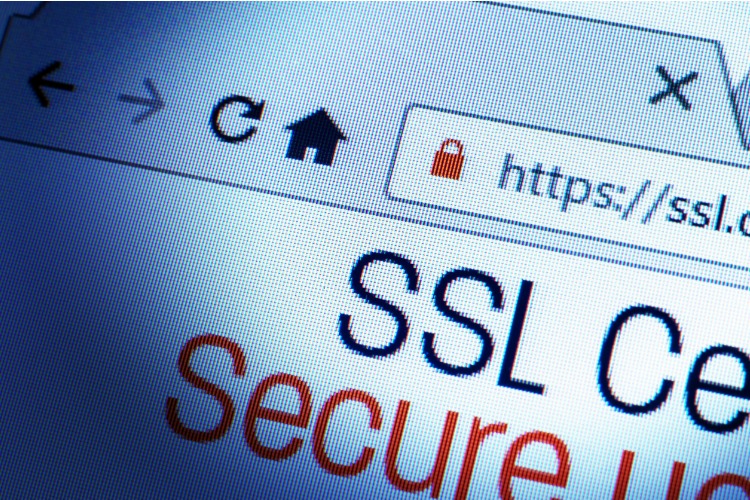How an SSL Certificate Helps in SEO
Security isn't just a perk anymore—it's a must-have. Back in the day, SSL certificates used to be something only e-commerce sites needed, but today, they're crucial for every site, big or small. And guess what? Google agrees. Having an SSL certificate can directly impact your SEO rankings. So, SSL and SEO go hand in hand.
So, how does securing your site help you climb the SEO ladder? Let's walk through the key steps that connect SSL with better search engine performance.
Google Rewards HTTPS
In 2014, Google started using HTTPS as a ranking signal. That means if your website has an SSL certificate and uses HTTPS, you get a slight bump in rankings. Now, don't expect a magic leap from SSL and SEO overnight. But in competitive markets, SSL might give you the edge over competitors.
Look at it this way: Google's job is to serve users the best results, and secure websites are part of that. Without SSL, your site risks falling behind the secure ones. This is harmful to both your website and reputation, especially if you work in the Phoenix web design market.
Building Trust and Keeping Visitors Engaged
Ever clicked on a site and seen a big, bold warning: "Not Secure"? Yeah, it's off-putting. Many users see that and hit the back button faster than you can say "bounce rate." High bounce rates signal to Google that users aren't finding your site helpful, which can be pretty damaging to your rankings.
When you use SSL and SEO, browsers show that little padlock icon next to your URL. This icon gives visitors a sense of safety. They're more likely to hang around, click through your pages, and engage with your content. When people trust your site, Google notices.
Protecting Data to Show Google You Care
Google isn't just about delivering the best information. It's about delivering safe information. SSL encryption secures the data between your site and your users. You can say it keeps your, for example, login credentials or credit card numbers safe from prying eyes.
Now, even if you're not dealing with sensitive info, using SSL and SEO shows Google you care about your users' experience. That's another reason your rankings can improve. Google's always looking out for user experience, and a secure site hits that mark.
Boosting Speed with HTTP/2
Most sites using SSL and SEO also take advantage of HTTP/2. It is a protocol that speeds things up. You know how slow websites are a pain to deal with, right? Well, so does Google. Speed is a major factor in SEO, and a faster site means happier visitors.
With HTTP/2, your pages load quicker, especially with all those little elements like images and scripts. Faster load times keep users from clicking away, and every second you shave off can help your SEO. SSL isn't just about security—it also opens the door to faster performance.
Mobile SSL and SEO Go Hand in Hand
Mobile traffic is huge, and Google's mobile-first indexing puts even more weight on it. If your mobile site lacks SSL, you'll see that ugly "Not Secure" warning. That's a sure way to lose mobile visitors fast. And since Google ranks sites based on their mobile versions, this is a big deal.
Mobile users expect things to work seamlessly. SSL and SEO certificates make sure that happens by providing a secure, smooth experience. The more time users spend on your mobile site, the better your SEO results will be.
Avoiding the Pitfalls of Duplicate Content
When switching from HTTP to HTTPS, don't forget to set up 301 redirects. If you skip this step, Google might index both the HTTP and HTTPS versions of your site. That creates duplicate content, which is a big no-no in SEO. Google doesn't know which version to rank, and that confusion can hurt your search visibility.
So, after adding SSL, make sure every URL points to HTTPS. Redirect the old ones, clean up any mixed content, and avoid those SSL and SEO penalties.
Making User Experience Meet SEO
SEO isn't just about keywords and backlinks anymore. It's about the whole package—how users experience your site. If your site feels safe, loads fast, and works smoothly on mobile, users will stick around. SSL and SEO are the foundational part of building that experience.
When Google sees users spending more time on your site, engaging with your content, and not bouncing back to the search results, it takes note. A positive user experience backed by SSL leads to better SEO rankings in the long run.
The Bottom Line
In the competitive online space we have today, having an SSL certificate isn't just a technical checkbox; it has become essential for anyone serious about ranking higher in search results. Securing your site, speeding up page loads, and protecting user data aren't just nice-to-haves—they're game-changers in the SEO world. So, if you haven't added SSL yet, what are you waiting for? The path to better SSL and SEO starts with security.

